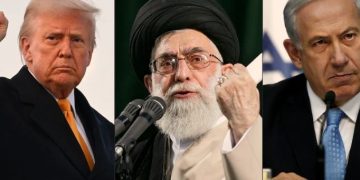EDITORIAL
The passage of the Land Boundary Agreement marked a major breakthrough in respect of Indo-Bangladesh relations. It also showcased a rare sense of cooperation between the Treasury benches and the Opposition in both houses of the Indian Parliament. This also should be seen as part of the maturing process of Indian democracy, wherein, like in the US,
national interests take precedence over party politics, especially in
regional and foreign relations. The comical part where the Prime Minister’s vote (electronic) display showed White (Not voted) and the External Affairs minister’s vote displayed a Red (No) in the Lok Sabha notwithstanding, the unity of purpose was admirable.
Many successive governments on both sides contributed to the culmination of this agreement, as is reflected in the gracious way external affairs minister Sushma Swaraj thanked former prime minister Manmohan Singh, and PM Narendra Modi praised Congress leader Sonia Gandhi for the positive turn. What adds to the strength of the agreement is that both the Bangladesh Nationalist Party of Khaleda Zia and the Awami League of Prime Minister Sheikh Hasina are also putting their weight behind the agreement. Political consensus on both sides is bound to be of great help in the implementation of an agreement that was overdue.
The present agreement is a fulfilment of the unfinished agenda under the Nehru-Noon accord of 1958 that was sketchy and left problems pending, and the Indira-Mujib pact of 1974. While Bangladesh parliament had given its nod to the agreement a long while ago, India failed to do so due to unfinished procedural formalities like demarcation of land on both sides. The follow up in 2011 by the Manmohan Singh government helped pushed the matter further but a final agreement still dragged on.
According to the final agreement, that is now a reality, each country will have legal ownership of land that were in their adverse possession across the international border – a total of 2,268 acres in the case of Bangladesh and 2,777 acres in the case of India. Also another contentious issue stands resolved – the 6.1 km stretch of the international boundary which had never been demarcated.
Clearly, repeated change of governments in India and Bangladesh had their adverse impact on pushing the border land agreement. Through the past many years, large numbers of people lived without a nationality on these lands spread over many villages. They had no citizenship –neither Indian, nor Bangladeshi, nor Pakistani. This proved to be a perfect scenario for anti-social activities. People in these enclaves were also being influenced by anti-national elements to execute their subversive agenda against both India and Bangladesh.
In fact, people from these enclaves largely formed part of
Pakistani-inspired fake currency rackets, and of gangs whipping up communal feelings so as to fish in troubled waters. States
like Assam bore the brunt of such gangsterism leading to violence. Economic interests as also matters of livelihood got
intertwined with such issues, further complicating the law and order situation in and around these enclaves.
Bangladesh, as of now, is under the firm grip of Prime Minister Sheikh Hasina, with whom the UPA government maintained excellent relations. NDA was known to be more favourably disposed to Begum Khaleda, who leads the Opposition BNP and is now out in the dumps, but can still not be written off. Her party is the second most powerful entity there. Her support to this move has been of vital importance.
Under the circumstances, the kind of consensus that has emerged in respect of the Land Border Agreement is a welcome sign. Both sides would do well to keep up the spirit of understanding and cordiality in the interests of long-term Indo-Bangladesh relations.
The ratification of the Land Border Agreement should come as a fitting augury for Prime Minister Narendra Damodardass Modi’s scheduled trip to Bangladesh sometime in the near future. This is time to further strengthen the bond between the two nations that have much in common yet have been quarrelling for no reason whatsoever.





































